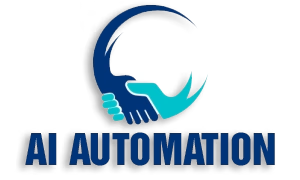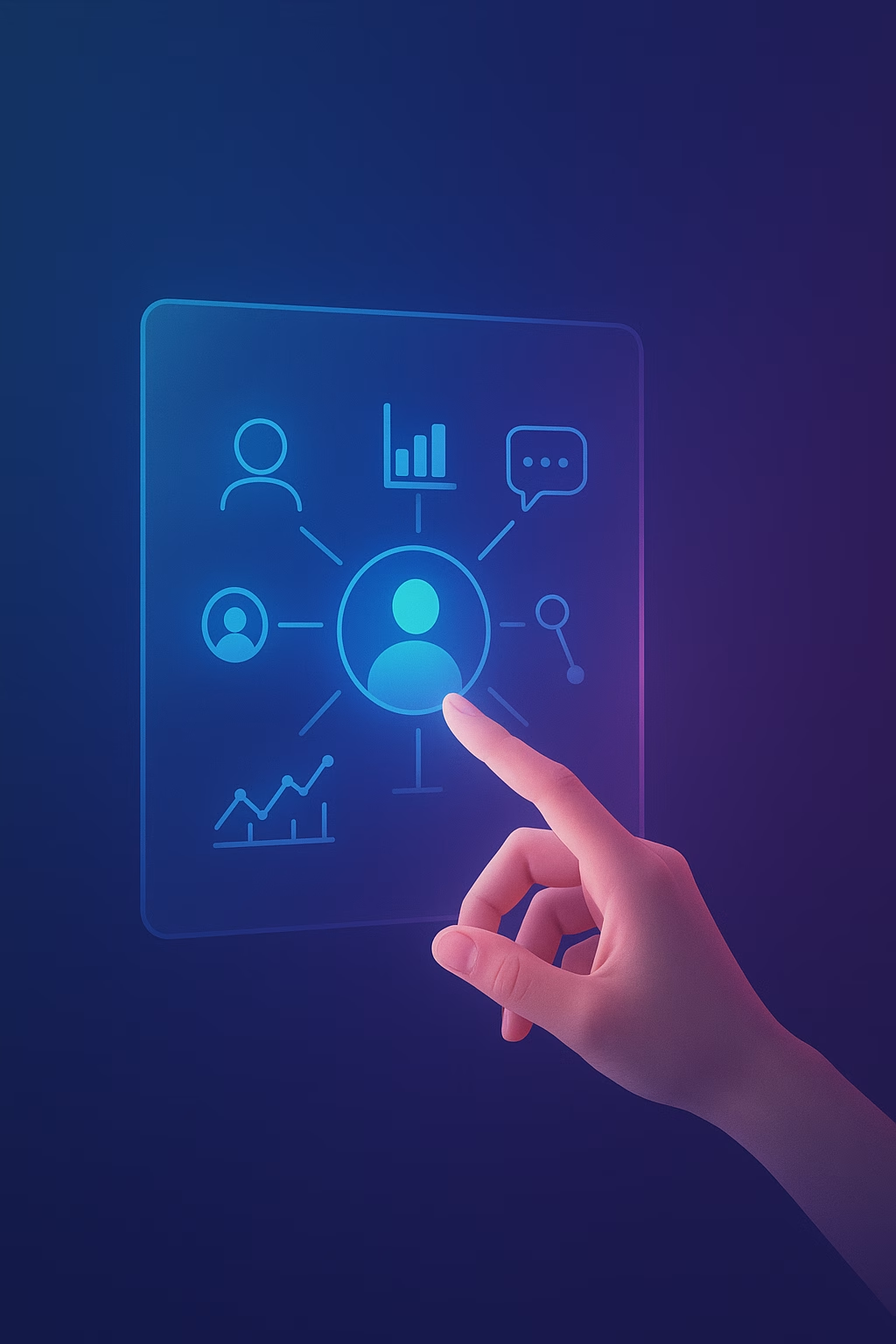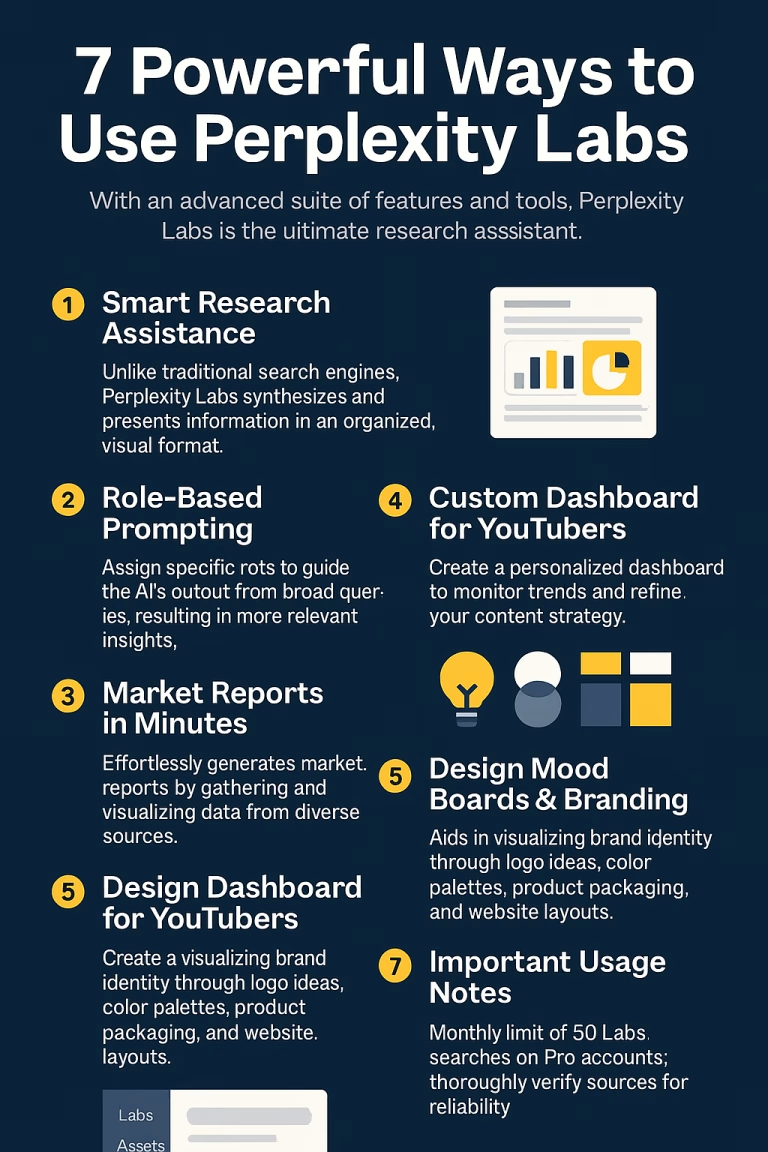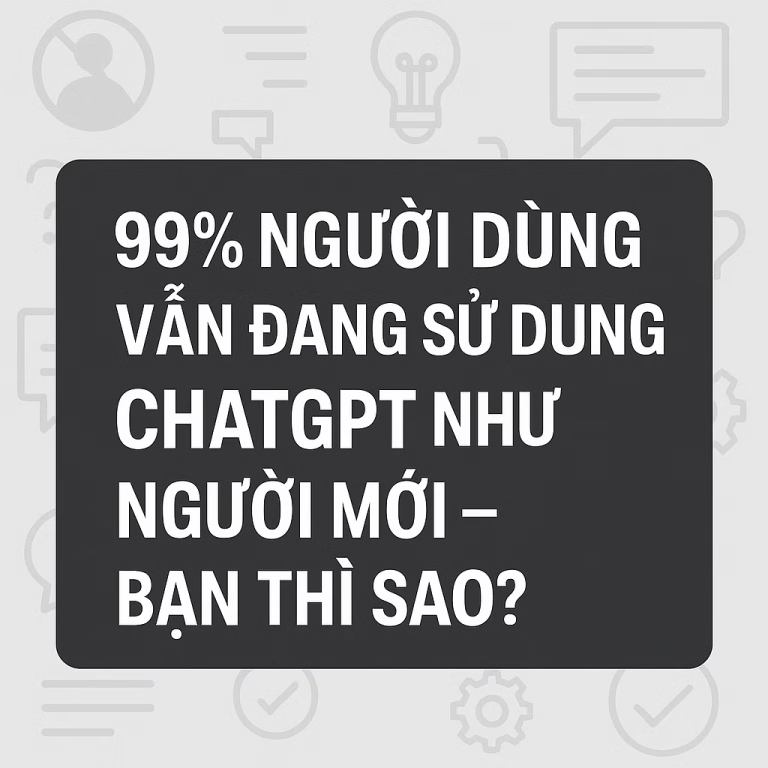AI Tools for Personalized Marketing Campaigns: A Small Business Guide
Unlock growth with AI tools for personalized marketing campaigns. Learn how small businesses can leverage free and freemium AI to segment customers, create tailored content, and optimize campaigns for maximum impact.
Introduction: The Era of Hyper-Personalization in Marketing
In today’s crowded digital marketplace, a one-size-fits-all marketing approach no longer cuts it. Consumers expect experiences tailored to their individual needs, preferences, and behaviors. This shift has elevated personalized marketing campaigns from a luxury to a necessity for businesses of all sizes. For small businesses, where every customer interaction counts, the ability to deliver relevant, timely, and individualized messages can be the key to building loyalty and driving growth.
However, achieving true personalization at scale can be daunting without significant resources. This is where artificial intelligence steps in. AI tools are transforming how small businesses approach marketing, enabling them to analyze vast amounts of data, predict customer behavior, and automate the delivery of highly personalized content. This comprehensive guide will explore the power of AI tools for personalized marketing campaigns, focusing on accessible and often free solutions that empower small businesses to compete effectively and forge stronger customer relationships.
1. The Imperative of Personalized Marketing for Small Businesses
Why should small businesses prioritize personalized marketing, and how does AI make it achievable?
- Increased Customer Engagement: Personalized content resonates more deeply with individuals, leading to higher open rates, click-through rates, and overall interaction. AI ensures messages are always relevant.
- Higher Conversion Rates: When offers and recommendations are tailored to specific needs, customers are more likely to make a purchase. AI helps predict what customers want.
- Enhanced Customer Loyalty: Personalized experiences make customers feel valued and understood, fostering stronger relationships and repeat business. AI maintains this connection over time.
- Optimized Marketing Spend: By targeting the right customers with the right message at the right time, AI helps reduce wasted ad spend and improves return on investment (ROI).
- Competitive Edge: Small businesses can differentiate themselves by offering a level of personalization that rivals larger competitors, even with limited budgets, thanks to accessible AI.
- Data-Driven Decisions: AI analyzes customer data to provide actionable insights, helping businesses understand their audience better and refine their strategies continuously.
2. Key Categories of AI Tools for Personalized Marketing
AI tools for personalized marketing campaigns span various functionalities, each contributing to a more tailored customer journey. Understanding these categories helps small businesses identify the right tools for their specific needs.
2.1. Customer Data Platforms (CDPs) & CRM with AI
At the heart of personalization is data. CDPs and CRM systems with integrated AI capabilities collect, unify, and activate customer data from various touchpoints, creating a single, comprehensive view of each customer.
- Function: Segment customers based on demographics, behavior, purchase history, and preferences. Predict future actions, identify high-value customers, and recommend next best actions.
- Benefit for Small Businesses: Centralize customer information, enabling targeted communication and personalized offers. Automate lead scoring and customer segmentation, making marketing efforts more precise.
2.2. AI-Powered Content Creation & Personalization
Creating unique content for every customer is impossible manually. AI solves this by generating and adapting content at scale, ensuring relevance for individual segments.
- Function: Generate personalized email subject lines, ad copy, product descriptions, blog post ideas, and even social media captions. Dynamically adapt website content or product recommendations based on user behavior.
- Benefit for Small Businesses: Produce high volumes of tailored content quickly and efficiently, maintaining brand consistency while speaking directly to individual customer interests.
2.3. AI-Driven Email Marketing & Automation
Email remains a powerful channel. AI enhances email marketing by personalizing content, optimizing send times, and automating entire campaign flows.
- Function: Personalize email content, subject lines, and calls-to-action based on recipient data. Automate email sequences (welcome series, abandoned cart reminders, re-engagement campaigns) triggered by specific customer actions. Predict optimal send times for individual users.
- Benefit for Small Businesses: Increase email open rates, click-through rates, and conversions by delivering highly relevant messages at the most impactful moments, all with minimal manual effort.
2.4. AI for Social Media & Ad Targeting
Social media and paid advertising are crucial for reach. AI optimizes these channels by identifying target audiences, personalizing ad creatives, and managing campaign performance.
- Function: Analyze social media trends and audience sentiment. Identify optimal times to post. Personalize ad creatives and target specific audience segments based on predicted interests and behaviors. Automate bidding and budget allocation for ad campaigns.
- Benefit for Small Businesses: Maximize ad spend efficiency, reach the most receptive audiences, and create social media content that drives higher engagement and conversions.
2.5. Predictive Analytics & Recommendation Engines
Understanding what customers might do next is a superpower. AI uses historical data to predict future behavior and recommend relevant products or services.
- Function: Predict customer churn, identify cross-sell and up-sell opportunities, and generate personalized product or content recommendations (e.g., “customers who bought this also bought…”).
- Benefit for Small Businesses: Drive additional sales, reduce customer churn, and improve the overall customer experience by proactively offering highly relevant suggestions.
2.6. Chatbots & Conversational AI
Providing instant support and personalized interactions can significantly improve customer satisfaction. AI-powered chatbots handle routine inquiries, freeing up human agents for complex issues.
- Function: Provide 24/7 instant customer support, answer FAQs, guide users through websites, and collect lead information. Personalize responses based on customer history and sentiment.
- Benefit for Small Businesses: Improve customer service efficiency, reduce response times, and enhance customer satisfaction by offering immediate, personalized assistance around the clock.
3. Top Free/Freemium AI Tools for Personalized Marketing Campaigns
While enterprise-level AI marketing platforms can be costly, many powerful AI tools for personalized marketing campaigns offer free tiers or trials that small businesses can leverage.
- ChatGPT (OpenAI) & Google Gemini (Google)
- Application: These general AI assistants are invaluable for personalized marketing campaigns at the content creation and ideation stages.
- Use Cases:
- Personalized Copy: Generate variations of ad copy, email subject lines, or social media posts tailored to different customer segments (e.g., “Write 3 email subject lines for customers who viewed our new product line but didn’t purchase”).
- Buyer Persona Development: Ask AI to create detailed buyer personas based on available data or industry insights.
- Content Brainstorming: Get ideas for blog posts or videos that address specific pain points of your target audience.
- Why it’s great: Free, highly versatile, and excellent for generating personalized content drafts and marketing ideas.
- Canva AI (Magic Media)
- Application: Visual content is crucial for personalized marketing. Canva AI helps create tailored graphics.
- Use Cases:
- Personalized Ad Creatives: Generate unique images for different ad campaigns targeting various demographics (e.g., “Create a vibrant image of a young professional enjoying coffee, suitable for a LinkedIn ad”).
- Social Media Visuals: Design customized visuals for social media posts that resonate with specific audience segments.
- Email Banners: Create eye-catching, personalized banners for email newsletters.
- Why it’s great: Easy to use, integrates seamlessly with design workflow, and allows for quick generation of personalized visual content without design expertise.
- Grammarly
- Application: Ensures all personalized content is error-free and maintains a consistent brand voice.
- Use Cases:
- Tone Consistency: Ensure personalized emails, ad copy, and website content maintain your desired brand tone (e.g., friendly, professional, empathetic).
- Error-Free Communication: Automatically correct grammar, spelling, and punctuation in all marketing materials.
- Clarity: Improve the readability and impact of your personalized messages.
- Why it’s great: Essential for maintaining a professional image and ensuring clarity in all personalized communications, even in its free version.
- QuillBot
- Application: Helps rephrase content to create unique variations for different personalized messages.
- Use Cases:
- Content Variation: Quickly generate multiple versions of a marketing message or product description to test which performs best with different customer segments.
- Avoiding Repetition: Rephrase existing content to create fresh, personalized messages for various touchpoints in a customer journey.
- Why it’s great: Excellent for generating diverse content variations for A/B testing and ensuring personalized messages don’t sound repetitive.
- Mailchimp (with AI features)
- Application: A popular email marketing platform that now integrates AI for personalization and automation.
- Use Cases:
- Audience Segmentation: Use AI-powered insights to segment your email list based on engagement, purchase history, and demographics.
- Smart Send Times: AI predicts the optimal time to send emails to individual subscribers for maximum open rates.
- Subject Line Assistant: Get AI-generated subject line suggestions to improve email open rates.
- Why it’s great: Mailchimp’s free tier allows small businesses to manage a subscriber list and leverage basic AI features for personalized email campaigns.
- Tidio (with AI Chatbots)
- Application: Integrates live chat with AI-powered chatbots for personalized customer engagement on your website.
- Use Cases:
- Personalized Welcome Messages: Greet website visitors with tailored messages based on their browsing behavior or referral source.
- Lead Qualification: Use chatbots to ask personalized questions and qualify leads before connecting them with a human agent.
- 24/7 Support: Provide instant, personalized answers to common customer questions, improving satisfaction.
- Why it’s great: Tidio’s free plan allows small businesses to implement AI-powered chatbots for personalized customer interactions, improving lead generation and support.
- Zapier AI Agents
- Application: While not a direct marketing tool, Zapier’s AI Agents can automate personalized marketing workflows across thousands of apps.
- Use Cases:
- Personalized Follow-ups: Create a “Zap” to automatically send a personalized email (drafted by ChatGPT) to a customer after they perform a specific action (e.g., download a guide, abandon a cart).
- Data Synchronization: Automatically update customer profiles in your CRM with personalized insights from other marketing tools.
- Automated Content Distribution: Distribute personalized content (e.g., blog posts, product updates) to relevant social media channels or email segments.
- Why it’s great: Zapier empowers small businesses to build sophisticated, personalized automation workflows without any coding, connecting various marketing tools seamlessly.
4. Best Practices for Implementing AI in Personalized Marketing
To truly succeed with AI tools for personalized marketing campaigns, small businesses should adopt these best practices:
- Start with Clear Goals: Define what you want to achieve with personalization (e.g., increase email open rates by 10%, reduce cart abandonment by 5%). This guides your tool selection and strategy.
- Focus on Data Quality: AI is only as good as the data it’s fed. Ensure your customer data is accurate, complete, and well-organized.
- Segment Your Audience: Even with AI, effective personalization starts with understanding different customer segments. Use AI to refine these segments further.
- Maintain Human Oversight: AI is a powerful assistant, not a replacement. Always review AI-generated content and automated processes to ensure they align with your brand and customer expectations.
- Iterate and Optimize: Personalized marketing is an ongoing process. Continuously monitor campaign performance, gather feedback, and use AI-driven insights to refine your strategies.
- Ethical Considerations: Be transparent with customers about how you use their data for personalization. Prioritize data privacy and avoid intrusive or creepy personalization tactics.
- Integrate Tools: Maximize the power of AI by integrating different tools (e.g., ChatGPT for content, Mailchimp for email, Zapier for automation) to create a cohesive personalized marketing ecosystem.
Conclusion: The Future of Small Business Marketing is Personalized and AI-Powered
The ability to deliver highly personalized marketing campaigns is no longer exclusive to large enterprises. Thanks to a growing suite of accessible and often free AI tools for small business, entrepreneurs can now leverage cutting-edge technology to understand their customers better, create tailored content, and optimize their marketing efforts for unprecedented success.
By strategically adopting AI for customer segmentation, content creation, email automation, social media targeting, and customer service, small businesses can build stronger relationships, drive higher conversions, and achieve sustainable growth. Embrace these powerful AI solutions, and transform your marketing from generic messaging to impactful, individualized experiences that truly resonate with your audience. The future of small business marketing is intelligent, efficient, and deeply personal.






